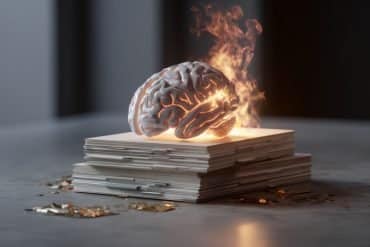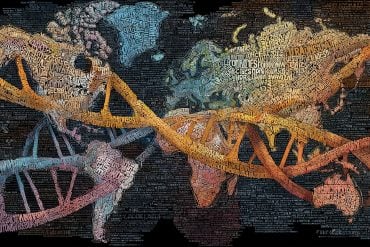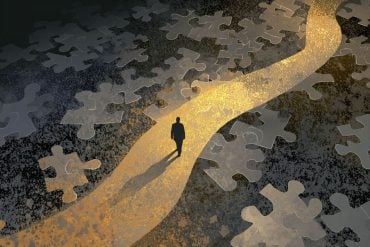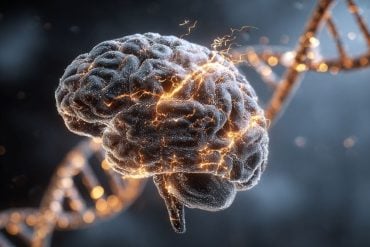Summary: Researchers discover the protein nestin produced in astrocytes plays a role in inhibiting neural differentiation. The study reports nestin does not control adult neurogenesis by acting within neural stem cells, but by regulating Notch signals neural stem cells receive from astrocytes.
Source: University of Gothenburg.
Researchers at Sahlgrenska Academy at the University of Gothenburg, Sweden, in collaboration with research groups in Finland, Canada, and Slovenia, have discovered a novel and unexpected function of nestin, the best known marker of neural stem cells.
In the developing brain, the 3 main cell types, specifically neurons, astrocytes and oligodendrocytes, are generated from neural stem cells. In some parts of the brain, such as the hippocampus, the brain region involved in learning and memory, new neurons are being added to the existing neuronal circuitry even in the adulthood when severe restriction of neuronal differentiation occurs.
Using mice deficient in nestin, a protein that is a component of the part of the cytoskeleton known as intermediate filaments or nanofilaments, the research team led by Prof. Milos Pekny showed that nestin produced in astrocytes has an important role in inhibiting neuronal differentiation. They linked this regulatory function of nestin to the Notch signaling from astrocytes to neighboring neural stem cells. Thus, surprisingly, nestin does not control the generation of neurons by acting within neural stem cells, but indirectly by regulating the neurogenesis-inhibitory Notch signals that neural stem cells receive from astrocytes, important constituents of the neurogenic niche.
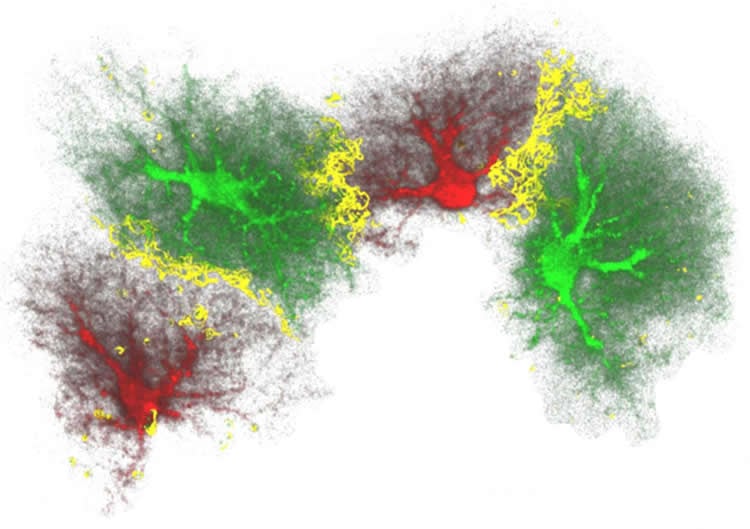
Generation and functional integration of new neurons in the adult mammalian hippocampus can lead to the reorganization of the neuronal circuitry, triggering 2 opposing effects: a better formation of new memories and a more pronounced loss of previously acquired memories. And indeed, adult mice lacking nestin have both increased number of newly born neurons in the hippocampus and impaired long-term memory.
Intermediate filament proteins, or nanofilament proteins as they are sometimes called, are important stress proteins that in many cell types act as crisis command centers in times of cellular stress and emerge as interesting targets in many diseases – says Milos Pekny. They are also linked to the control of cell differentiation and in the brain or spinal cord their regulation might be a new approach for improving brain plasticity and regeneration responses in situations such as stroke, neurotrauma or neurodegenerative diseases.
Our study adds to the list of important functions of astrocytes in the central nervous system, the cells that we increasingly view as the brain of the brain, a system that controls many processes in healthy and diseased brain – explains Ulrika Wilhelmsson.
Source: Milos Pekny – University of Gothenburg
Publisher: Organized by NeuroscienceNews.com.
Image Source: NeuroscienceNews.com image is credited to Milos Pekny and Marcela Pekna, Physiological Reviews, 2014.
Original Research: Abstract for “Nestin Regulates Neurogenesis in Mice Through Notch Signaling From Astrocytes to Neural Stem Cells” by Ulrika Wilhelmsson, Isabell Lebkuechner, Renata Leke, Pavel Marasek, Xiaoguang Yang, Daniel Antfolk, Meng Chen, Paria Mohseni, Eva Lasič, Saša Trkov, Bobnar Matjaž Stenovec, Robert Zorec, Andras Nagy, Cecilia Sahlgren, Marcela Pekna, and Milos Pekny in Cerebral Cortex. Published January 3 2019.
doi:10.1093/cercor/bhy284
[cbtabs][cbtab title=”MLA”]University of Gothenburg”New Insight Into the Process of New Neuron Generation in the Adult Brain.” NeuroscienceNews. NeuroscienceNews, 3 January 2019.
<https://neurosciencenews.com/adult-brain-neurogenesis-10417/>.[/cbtab][cbtab title=”APA”]University of Gothenburg(2019, January 3). New Insight Into the Process of New Neuron Generation in the Adult Brain. NeuroscienceNews. Retrieved January 3, 2019 from https://neurosciencenews.com/adult-brain-neurogenesis-10417/[/cbtab][cbtab title=”Chicago”]University of Gothenburg”New Insight Into the Process of New Neuron Generation in the Adult Brain.” https://neurosciencenews.com/adult-brain-neurogenesis-10417/ (accessed January 3, 2019).[/cbtab][/cbtabs]
Abstract
Nestin Regulates Neurogenesis in Mice Through Notch Signaling From Astrocytes to Neural Stem Cells
The intermediate filament (nanofilament) protein nestin is a marker of neural stem cells, but its role in neurogenesis, including adult neurogenesis, remains unclear. Here, we investigated the role of nestin in neurogenesis in adult nestin-deficient (Nes–/–) mice. We found that the proliferation of Nes–/– neural stem cells was not altered, but neurogenesis in the hippocampal dentate gyrus of Nes–/– mice was increased. Surprisingly, the proneurogenic effect of nestin deficiency was mediated by its function in the astrocyte niche. Through its role in Notch signaling from astrocytes to neural stem cells, nestin negatively regulates neuronal differentiation and survival; however, its expression in neural stem cells is not required for normal neurogenesis. In behavioral studies, nestin deficiency in mice did not affect associative learning but was associated with impaired long-term memory.




